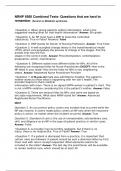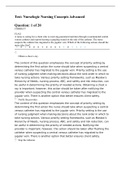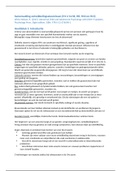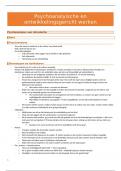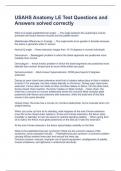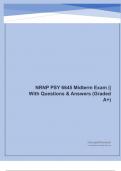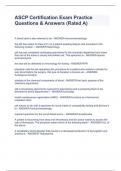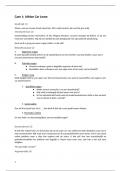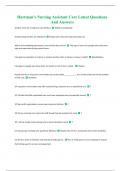Other
NRNP 6568 Combined Tests- Questions that are hard to remember
- Institution
- Walden University
1. Question: When giving patients written information, what is the suggested reading level for that health information? 2. Question: An NP must have a DNP to prescribe controlled substances. True or False? 3. Question: DNP stands for Doctor of Nursing Profession. 4. Question: A well-accepted cha...
[Show more]
